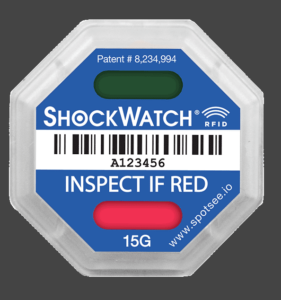Auto Manufacturers Discover the Advantages of RFID Inventory Management
One of the biggest challenges in automotive manufacturing is precisely managing the thousands of parts that go into creating an automobile. Car manufacturing involves a good amount of complexity as manufacturers produce different models and work with a wide variety of equipment.
To adapt to the changes, many automotive manufacturing companies are adopting RFID inventory management technology to improve efficiency and more effectively track automotive components throughout their supply chain. Passive RFID tags use electromagnetic waves to communicate data to readers. RFID is quickly replacing barcodes and auto manufacturers who don’t adapt will lose their competitive advantage.
So why are automakers switching from barcodes to RFID supply chain systems? Here are some compelling reasons why car manufacturers need to adopt RFID inventory management technology into their manufacturing process.
RFID Supply Chains Increase Process Reliability and Reduce Manufacturing Errors
Manual processing is tedious and tired workers are more likely to make mistakes. Mistakes are also likely when workers deal with parts that look similar, which is common in car manufacturing.
Furthermore, barcodes can get covered in oil or debris or physically damaged when they are being transported or processed in a facility. RFID systems overcome this challenge as RFID labels are encased in a durable casing designed to withstand extreme conditions. RFID labels can also store more important information, like on which vehicle the part will be installed.
RFID supply chains improve reliability and reduce errors in manufacturing by using automation to quickly identify parts with accuracy. It can immediately check if all the correct parts are installed in a vehicle, which saves time versus manual inspection.
SpotSee’s ShockWatch RFID allows manufacturers to identify if they have the right part but just as important is knowing that the parts being installed are damage free. SpotSee’s ShockWatch RFID is an example of a passive RFID tag designed specifically for the auto industry. It can detect if the part has experienced an excessive impact that may have damaged the component and prevent a damaged part from even entering the manufacturing line.
Eliminate Tedious Manual Processing with RFID Inventory Management
With barcodes, processing inventory requires operators to manually scan each item. This process is time-consuming and tedious.
Auto manufacturing leaders are using passive RFID tags to eliminate manual processing by automating the process. RFID tags allow parts to be scanned from a distance by RFID readers, allowing manufacturers the ability to automate the inspection process.
Eliminating manual processing frees up human resources, allowing workers to focus on other high-value operations and processes.
RFID Automation Increases Production Rate and Efficiency
RFID automation allows a significant increase in production rate and efficiency. Processes that used to take days to complete can often be completed in just minutes.
Unlike barcodes, RFID inventory management readers use non-line-of-sight (NLOS) data capture and can read data from further away. This technology improves your shipping process by allowing you to verify the shipment contents of incoming and outgoing shipments instantly.
Track Parts and Final Products Throughout the RFID Supply Chain
RFID supply chains allow manufacturers to easily track components throughout their journey and within the manufacturing facility. Data can be monitored in real-time in your ERP system, which can allow supply chain managers to detect potential delays and other problems before they occur.
Specialized RFID labels like ShockWatch RFID can detect when a part experiences impact/shock levels beyond a set threshold. This information can prompt manufacturers to inspect affected inventory before it reaches the final destination. Real-time monitoring allows operators to take quick corrective action so that they can obtain replacement inventory and avoid production delays.
Analysis of RFID supply chain data can pinpoint recurring problems within the supply chain where damage is occurring, identifying opportunities for optimization. Process and packaging improvements can prevent these problems in the future, resulting in significant cost savings and more reliable supply chain efficiency.
Gather and Store More Information with RFID Labels
Barcodes can only store a limited amount of information, usually just the identity of the component. RFID labels can contain more data, which allows manufacturers the ability to streamline their operations and reduce the need for and reliance on manual labeling.
RFID can tell you exactly where a part is installed within a vehicle and eliminates a lot of manual documentation. With RFID labels, you can know if the right parts are installed in the right vehicles in addition to being able to track inventory.
RFID is also useful for lot management for completed vehicles. Using RFID, operators can quickly identify the correct vehicle in a lot with thousands of other vehicles, even among other identical cars.
Learn How SpotSee’s ShockWatch RFID Can Work for Your Automotive Manufacturing Scenario
SpotSee’s ShockWatch RFID not only provides the ability for automakers to track inventory but also detects and tracks damage throughout the RFID supply chain. Being able to detect exactly when and where damage occurs will allow you to take immediate action to reduce production delays as well as make process improvements to prevent future incidents from occurring.
SpotSee designed ShockWatch to be easy to use so that businesses can quickly adopt the technology and get results fast.
Want to learn more about how using ShockWatch can help add RFID inventory management to your business? Then fill out the form below to get in touch with a SpotSee expert and learn how we can help your manufacturing operations thrive.










